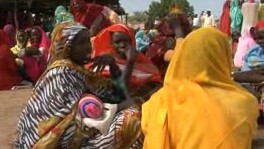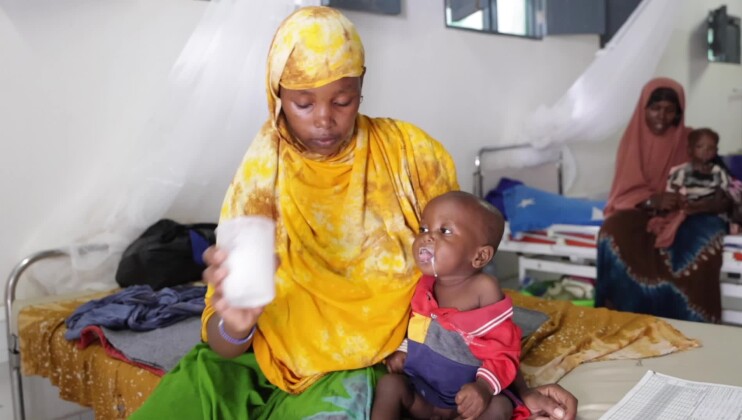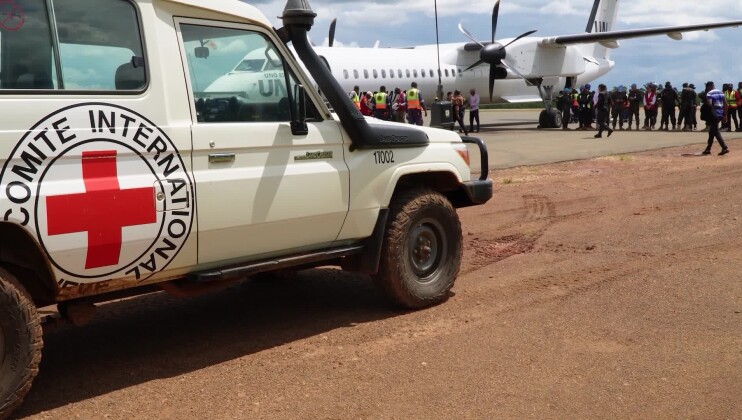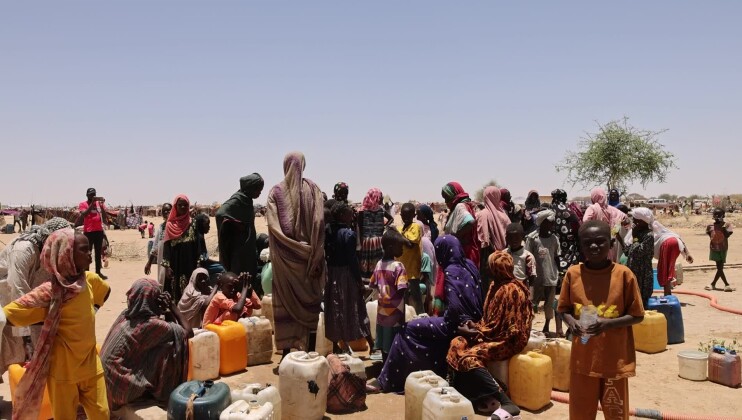Darfur/Pakistan: Camps: solution or problem?

This is a modal window.
Launching a special report on internally displaced people (IDPs), the ICRC points out that an estimated 26 million people had fled their homes as a result of armed conflict by the end of 2008.*
Camps like Gereida in Darfur, which has sheltered up to 150,000 residents, reflect only a tiny part of the problem. While the role camps play in temporary emergency relief is clear, they often create new problems and compound vulnerabilities.
More strategies are needed for the millions who are dispersed by war and fall off the radar, relying on the help of host communities, or struggling by themselves. Displaced people endure extreme hardship, including direct attacks, ill treatment, sexual violence and loss of their property or livelihood because of violations of international humanitarian law.
Displaced in Dafur
When the conflict in Darfur, west Sudan broke out in 2003, hundreds of thousands lost their lives or were forced from their homes. Many sought shelter in camps, but many more had to survive through their own means or with the help of host communities. Gereida camp at its height provided shelter for up to 150,000 people but now, as relative calm and stability returns, many are taking the first steps towards going home.
Gereida Camp, Darfur
Spanning an area of 12.4 km squared with a perimeter over 30 km, Gereida camp in Darfur, is one of the biggest camps for internally displaced people (IDPs) in the world. The camp has been managed by the ICRC for the past two years. The World Food Programme distributes food supplies monthly. The ICRC provides clean water, clothing kits and soap. Every child can go to school.
People also have access to free health care. At the ICRC nutrition centre, run jointly with the British and Australian Red Cross, mothers and babies under 5 come for supplementary feeding. Caltun Ibrahim's baby, Yusuf Musa is only 6 weeks old and underweight. "He was suffering at the beginning but now he's improving," she says. Yusuf was a mere 2.2 kilos but now is 2.9 kilos.People living in the camp have experienced services never seen in their villages.
Returning Home
How many will leave Gereida camp is guesswork. Services will downsize as stability grows and emergency turns into recovery. Security in the area has greatly improved. 400 Nigerian peacekeepers maintain a presence and support government security and law enforcement agents in the area surrounding the camp.
Jean-Marc Favre, Head of the ICRC office in Gereida says: "In January, the government took over Gereida, and since that time, they provided the security in the camp, in the village, but most importantly, around Gereida, allowing people today to freely travel outside: go grass collecting, wood collecting and do agricultural work without fear of being attacked."
People are venturing outside the camp, planting in soil that was for years a no-man's land. Many are not yet convinced to return to their village. They have begun tentative trips back while maintaining their presence in the camp.
Marie-Astrid Blondiaux, ICRC, says: "People are going back and forth between the camp and this place here because they have services in the camp, such as education, water, food distribution... They want to live in this village but it's not easy to start your life again in a place that used to be empty 6 or 7 months ago."
Displaced outside of camp
Those trying to survive outside the camps are the ones that international organisations struggle to reach.
Mariam and other Fellata families from her village Sadoon were pushed out of their village by armed men and in the opposite direction from Gereida camp. Mariam recalls: "All these people walking: young and old. The fighters on their horses and on foot herded us forward. Weapons were going off above our heads. We walked for two days. I had the baby on my back. With the heat, we were exhausted and we walked for 2 days, always looking for somewhere to rest. On the third day, the baby died."
Mariam's group hid beneath some trees near a village of four or five dwellings where they had spotted a shallow well. They survived on casual farm labour a 2 hour walk away. There they stayed for 4 years in total isolation from the enormous humanitarian operation in Darfur.
They have recently returned to their village Sadoon. ICRC has provided them with seed and tools. "When we first came back, the Red Cross came to greet us," she says. "They helped a lot brought us tarpaulins, cottons, stoves and other items." For water and food, the villagers travel to Gereida camp. Mariam hopes the services she has seen in the camp, especially a school for her children, will one day be in her village.
Displaced in Pakistan
At the end of 2008, the Norwegian Refugee Council's Internal Displacement Monitoring Centre estimated there were 11.6 million displaced people in Africa, 4.5 million in the Americas, 3.9 million in the Middle East, 3.5 million in South and South-East Asia, and 2.5 million in Europe and Central Asia.
In Pakistan, armed violence in the Federally Administered Tribal Areas (FATA) and in North-West Frontier Province (NWFP) has killed thousands of civilians, injured many more and displaced millions. An estimated two million displaced people in August 2009 did not go to a camp, relying instead on the support of host communities.
Amjad fled with his 15 year old wife, his sister and brother when the bombing in his village Showr in the Matta area of the Swat valley began. Amjad remembers: "Our house was bombed and my mother, my father, brother and sister were killed on the spot. Our home, car and the cart we used for selling vegetables were also destroyed. We walked for two days to reach Mingora and hired a vehicle to reach Sheikh Maltoon. We arrived at a school. It was very hot and we had little water. There were 50 to 60 people in every room."
At the school they met the man who is now their host. Arshad is a businessman living in Sheikh Maltoon, a wealthy part of Mardan, but just a 2 hour drive away from the bombing. Arshad and his neighbours often visited the hospital bringing donations of clothes, food and fans. The story of 20 year old Amjad and his new wife played on Arshad's mind.
Arshad says: "One day I went back and asked them to come to my house. I didn't have a room exclusively for them but I built a wall in my living room to make a separate part. I installed a door and gave them the room. For four months they have lived here."
Amjad, like one in five people dispersed by conflict, has lost his means of income. Arshad, his host, is wealthier than the average, but the strain placed on host communities can be enormous. Typically, communities sheltering those displaced are also affected by the conflict and find their budgets too stretched to support 'guests' for long periods.
International organisations channel more and more resources into camps rather than into communities who are in desperate need of help. ICRC is calling for a shift in focus to include those dispersed by conflict in host communities. A greater respect for international humanitarian law could prevent displacement in the first place.
* Number of people internally displaced by conflict or violence as of December 2008 according to an Internally Displaced Monitoring Centre estimate.
SHOTLIST ATTACHED



